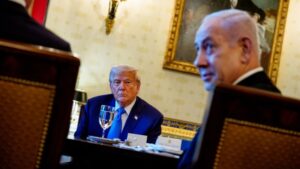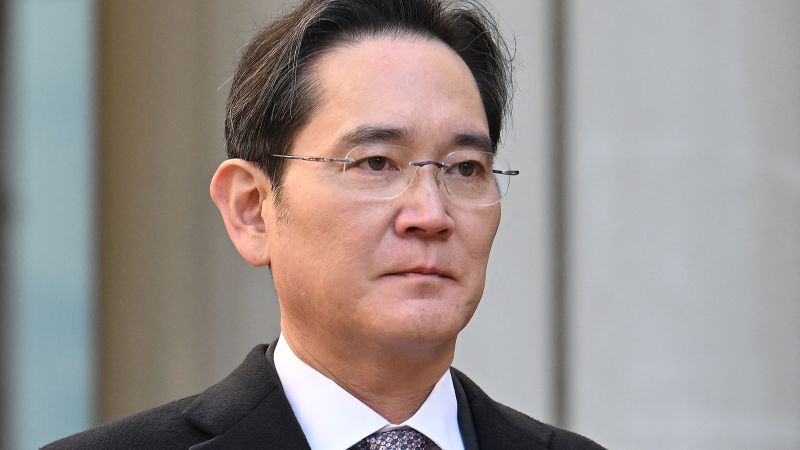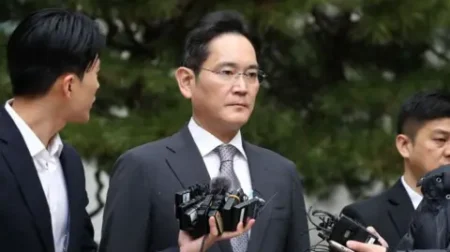On a notable Monday, Samsung Electronics Chairman Jay Y. Lee was acquitted of charges related to accounting fraud and stock manipulation by the Seoul High Court. This ruling marks a significant turning point for Lee, who has been embroiled in extensive legal battles that have raised questions about his capacity to lead Samsung, the world’s foremost producer of memory chips and smartphones. A series of allegations have surrounded Lee, particularly those stemmed from a controversial merger in 2015 that prosecutors claimed was orchestrated to solidify his control over the tech conglomerate. The court’s endorsement of a previous ruling dismissing all charges is likely to reduce lingering legal risks for Lee and remove distractions that have plagued his leadership.
The presiding judge established that although the accounting practices at Samsung BioLogics—a subsidiary involved in the merger—revealed “inappropriate acts,” the transactions reflected genuine financial conditions and were conducted with justifiable reasoning. Prosecutors insisted that the merger resulted in significant losses for Samsung C&T shareholders, yet the court determined that there was insufficient evidence to support this claim. Consequently, Lee’s legal team expressed hope that the ruling would allow him and those involved to redirect their focus to organizational responsibilities, hinting at the burdens imposed by the protracted court proceedings.
For nearly ten years, Lee has been mired in legal issues stemming from the fallout of his father, Lee Kun-hee’s, incapacitation in 2014 due to a heart attack, which raised the stakes around leadership succession within the family-controlled conglomerate. A lower court previously absolved Lee of all allegations concerning the $8 billion merger, which was between Samsung C&T and Cheil Industries. However, prosecutors launched an appeal seeking a five-year prison sentence, referencing a preceding ruling stating violations of accounting standards by Samsung BioLogics in order to facilitate the merger’s justification.
Despite the favorable ruling for Lee, Samsung shares declined by 2.7% upon the announcement. Civil groups voiced their discontent regarding the verdict, arguing it demonstrated undue leniency towards Lee, with claims that his actions caused detriment to stakeholders, including the country’s pension fund. The People’s Solidarity for Participatory Democracy emphasized that the ruling neglected previous court findings pertinent to the merger case, thus igniting debate concerning corporate governance within South Korea, particularly regarding conglomerates controlled by familial legacies.
Lee, previously imprisoned for 18 months on bribery convictions linked to a corruption scandal that ousted former President Park Geun-hye in 2017, had his sentence commuted in 2021. In 2022, he was granted a presidential pardon by impeached President Yoon Suk Yeol, a decision framed as necessary to bolster the national economy. Despite these legal reprieves, the consequences of the merger continue to challenge Lee; the National Pension Service, which once held significant shares in Samsung C&T, recently pursued legal action against him for alleged undervaluation associated with the merger.
Moving forward, analysts recognize this acquittal as a potential boon for Samsung and its enterprise, yet they also caution that Lee now bears a heavy burden to demonstrate managerial prowess absent of legal entanglements. Samsung Electronics faces pressing operational challenges, especially with reports indicating disappointing sales of its artificial intelligence chips in the current quarter. The conglomerate has notably lagged behind smaller competitor SK Hynix in AI chip supply to Nvidia, thereby missing considerable profit opportunities in the burgeoning AI sector, showcasing the direct links between leadership, legal conditions, and corporate performance.
In conclusion, while the Seoul High Court’s ruling may provide a pathway for Lee to regain focus on overseeing Samsung Electronics amidst increasing competitive pressures, a multitude of legal and market challenges remains. The ecosystem of South Korean chaebols will continue to monitor how the implications of this ruling evolve within the broader context of corporate governance and shareholder relations, especially in light of the ongoing inquiry into Samsung’s strategic positioning within the global technology landscape.











